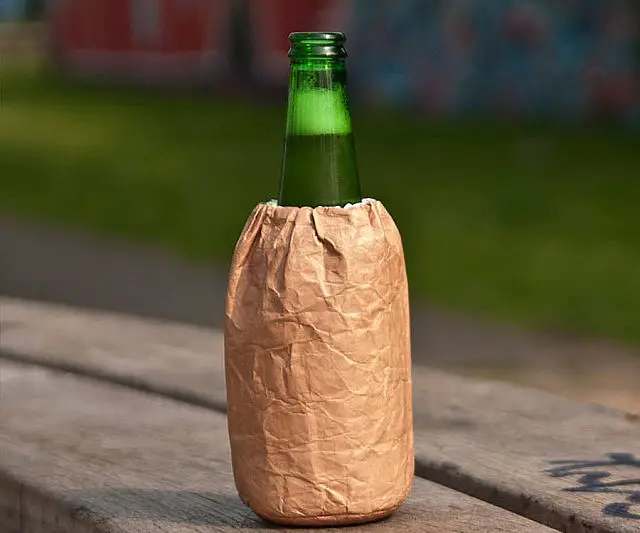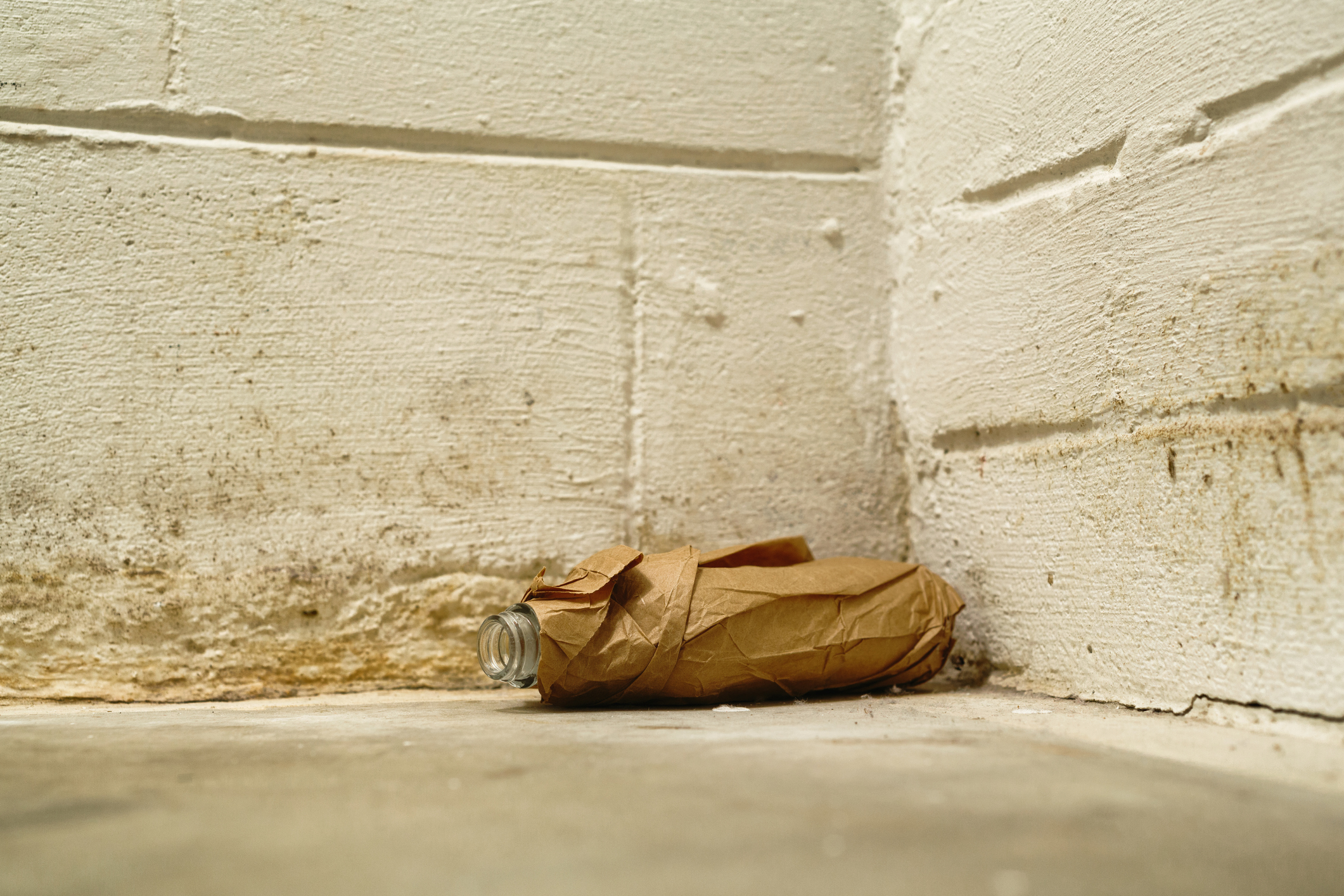In the early 20th century, the brown paper bag wrapping alcohol was established as a means of offering the person making the purchase a degree of privacy. In every state in the US, a person found intoxicated in public will be breaking the law and will be charged accordingly.
The problem is being in possession of a brown paper bag with items you’ve purchased leaves many with the presumption there’s alcohol in the bag. It actually draws attention instead of dissuading the authorities from taking a second glance. Of course, there’s nothing wrong with buying alcohol if you don’t consume it out in the open or while driving.
Some people believe if they consume their beer from a brown paper bag, it’s okay. While it will be seemingly disguised from public view, they’re not as effective as clear plastic since most liquor stores use paper bags. Also, the suggestion is that beer drunk from a brown paper bag doesn’t taste as good because the paper can absorb the beer’s flavor causing it to go flat.
If you don’t intend to drink in public but just want to bring the alcohol home for consumption, why do you need a bag? It’s a law in many states that alcohol be placed in a bag when sold to avoid the temptation of drinking in public with the potential for a disturbance. Let’s look more in-depth at why this policy is in place and what it all means.
Table of Contents
ToggleWhat Are The Laws Concerning Bagging Alcohol?

The laws in the US prohibit transporting open containers of alcohol in a vehicle. It can lead the police to assume you’ve been drinking and driving. When shop owners place the liquor in a brown paper bag upon purchase, it shows that it was bought recently and hasn’t been opened yet, nor are you in the process of drinking it.
The brown bag is the original packaging for the product, and it hasn’t been removed, showing no attempt to drink in public which is prohibited by law also. While the majority of US citizens are of the understanding that drinking in public is disallowed, that’s not entirely true. Some areas allow open containers in the public setting in certain states.
Minnesota, Texas, and other areas don’t make it illegal for an individual to consume alcohol in a public setting. These regions have specific public intoxication laws for the municipalities. Other states will cite an individual for simply drinking in the public arena.
Many Americans are under the assumption that public drinking is altogether illegal, not understanding there are caveats and regions where the laws are relaxed with stipulations.
Why Use Paper Bags For Alcohol
Some states don’t require alcohol to be sold in brown paper bags. Doing so originated with the concept of protecting the buyer’s privacy is the thought process behind the idea. The brown paper bag ultimately serves no useful purpose because the authorities are wise to how liquor is masked and are super adept as to whether someone has been drinking in public.
The only thing an individual can accomplish if having an open container in public, whether in a brown bag or not, is proving they haven’t been drinking it to avoid a charge for public intoxication. Ohio is one of the exceptions to the rule as they have the most relaxed regulations for alcoholic beverages.
When alcohol is purchased or even consumed within the store, law enforcement can seize the open container of beer and dispose of it in a public place. Still, it would seem the individual would face no particular repercussions for their indiscretion. Texas is also relatively generous with its public drinking laws and bagging regulations.
The state doesn’t permit single-use bags in many stores with a bag ban in place and laws that don’t require packaging for wine or beer, nor does anyone need to buy special bags to make these specific purchases.
The state allows people to walk freely with alcohol in specific locations, but it’s noted that there are also supposed to be state laws on intoxication in public.
That’s true in Minnesota, where the rules are similar, with people allowed to drink relatively freely in public, like in parks or public venues. Still, the legislation is set up so that intoxication is handled with its own set of laws in place.
In A Bar Setting
In many bars and pubs, the bartender will kick it with the regular patrons, often having them buy a round for the barkeep. It’s vital to remember bartenders are prohibited from drinking while working. That’s not indicating that all follow this guideline, but specifically in Texas, there is a “Texas Alcoholic Beverage Code” disallowing the practice.
This is because the bartender is responsible for protecting themselves, patrons, and staff from becoming a victim of circumstance with public intoxication. If the bartender becomes drunk, they can no longer send the patrons back out into the public safely, nor can they ensure they’re not going to be considered a public nuisance.
Will the barkeep wrap the alcohol in a brown bag when asked for a drink to go? Not if that bartender is drunk of their own accord.
Conclusion
Liquor stores and beer and wine retailers use brown paper bags to package what their patrons buy. They primarily do this because the state laws are stringent on alcohol sales not proceeding unless the product is contained in a non-opaque wrapping. Brown paper is the most cost-efficient method for a retailer to comply with legislation.
It also ensures that you don’t have a problem transporting your product in the car in case of a traffic stop, or if you’re in public and the authorities were to stop you for another violation, you wouldn’t have an open container or otherwise disturbed product.
It would be in its original packaging, with no signs of being opened, drunk, or disturbed, disallowing any possibility for a public intoxication charge. That means brown bags, while noticeable, are a good thing.

I am a passionate beer connoisseur with a deep appreciation for the art and science of brewing. With years of experience tasting and evaluating various beers, I love to share my opinions and insights with others and I am always eager to engage in lively discussions about my favorite beverage.
















